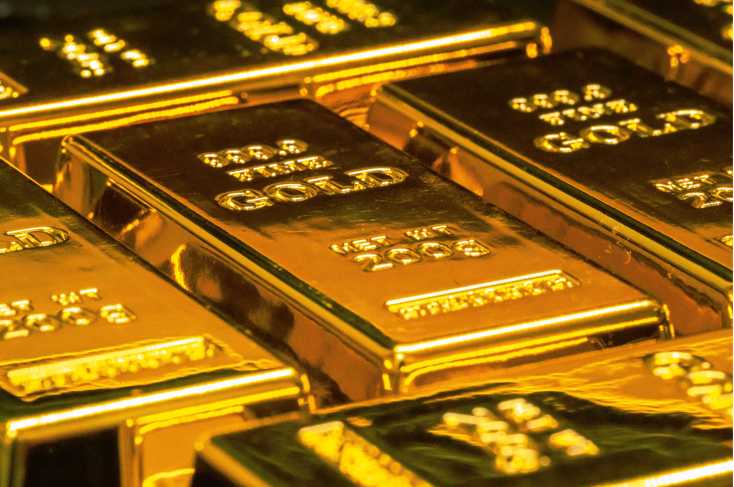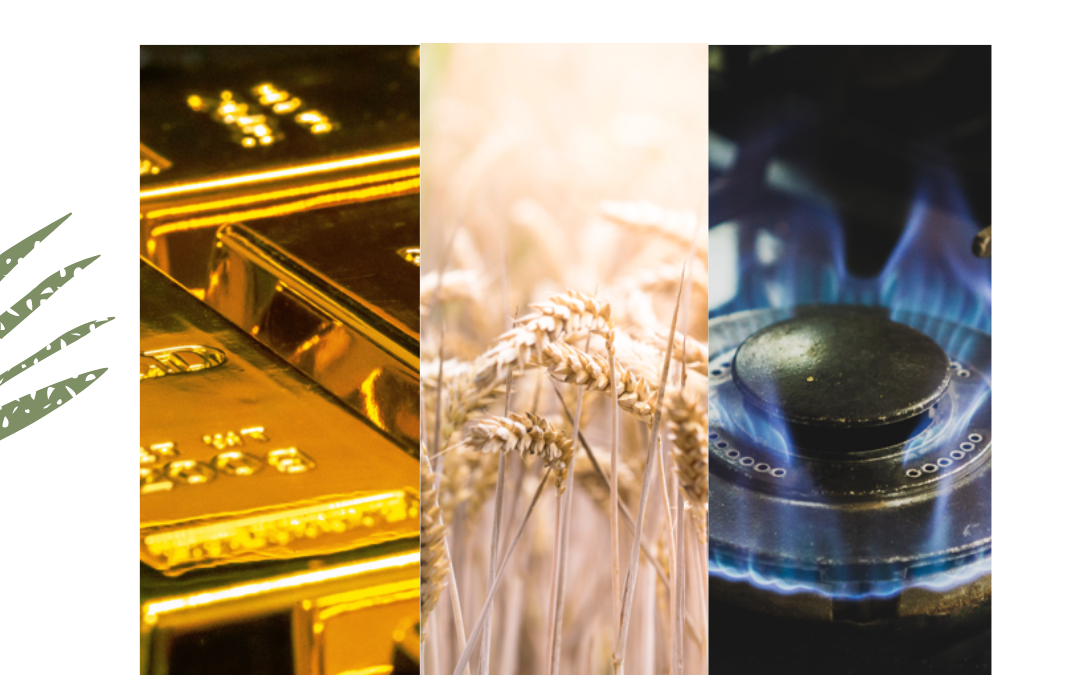Commodities offer traditional and conventional investment options that have been tried and tested for tens of decades. This week marks a roundup of our investments insight on commodities. Three significant commodities on the top five list are herein outlined. The three are; Gold, Wheat, and Natural Gas.
Gold
Popularly known for its high value and prestige, Gold is an investable commodity that offers a good return for money. An investor ought to understand the workings of Gold and will be able to take advantage of opportunities whenever they show up. The commodity that is Gold, is highly liquid, which means it can easily be converted to cash. It is also an inflation hedge and safeguards capital in times of economic turmoil.

One can invest in Gold by either buying it in physical form or tradeable securities such as Gold company stocks, Gold ETFs, and the Forex market. Physical gold is mostly stacked in bullion and offered on select exchanges. Gold company stocks include companies in gold mining, production, and refining. On the forex market Gold is mostly traded against the USD dollar, the pair trades under the symbol XAUUSD. Overall, Gold has significantly trailed the S&P500 netting average returns of 10.4%. The metal has outperformed all other commodities and remains attractive to investors.
Wheat
Second to rice as the world’s grain staple, is wheat. It is used for human food and industrial needs. There is no single country that can claim dominance of wheat which makes it available to different markets at relatively sound prices. It is measured in bushels for trading purposes. One bushel is equal to 60 pounds. Wheat a globally demanded staple has attractive investment opportunities that play to its tune of demand and supply.

You do not have to own a wheat farm to exercise ownership rights to this commodity. Wheat is tradable on the securities market. One can buy wheat in physical form or shares of wheat companies. There are wheat ETFs existing across different jurisdictions. You should be able to see which wheat ETFs are available in your country or region. Wheat can also be purchased and sold in the futures market, which opts to lock prices for the benefit of an investor.
Natural Gas
Natural gas supplies 18% of the world’s energy needs. This demand is estimated to grow to 40% by 2040. A clean source of energy, natural gas will continue its adoption and use by populations across the globe. It is commonly used for heating, cooking, and fueling power stations. These are uses that serve basic needs for humans hence assuring the commodity of a steady and growing demand into the future.

You can invest in natural gas price ETFs such as the United States Natural Gas Fund. Alternatively, you can invest in gas company ETFs such as First Trust Natural Gas ETF (FCG). Investments in Natural gas securities offer diversification opportunities that enable an investor to spread their risks while engaging profit potential.
Key Tip
Always know what best suits you when investing in commodities. The most common phenomenon is that they can either be traded in physical form or tradeable securities such as shares. Unlike investments in securities, investing in physical commodities attracts storage, transportation, and insurance costs. As an investor, you should be able to discern your risk and reward ratios when choosing between the two.
Fredrick Munyao
Related posts
Market Hacks
A look into Coinbase, What you Should Know
Cryptocurrency exchange platforms have offered crypto enthusiasts and investors reliable avenues that continue to increase in their popularity and reach….
Dogecoin, a hyped market sentiment?
The Crypto world keeps presenting new twists and turns into the investment space. Bitcoin experienced its soar, so did Ether….
What is a Trader Checklist? Here are Five Things.
Trading is one lucrative skillset that has the ability to generate short term returns that can be effectively deployed elsewhere…
How to Fight Inflation, The Use of Interest Rates.
Inflation is a word often pronounced in economic and financial circles. It has both positive and negative effects to a…
What is a Sovereign Wealth Fund? Here are the Top 5 Largest Sovereign Wealth Funds in the World.
A sovereign wealth fund is a pool of funds owned by an individual government that aims to invest partly or…







